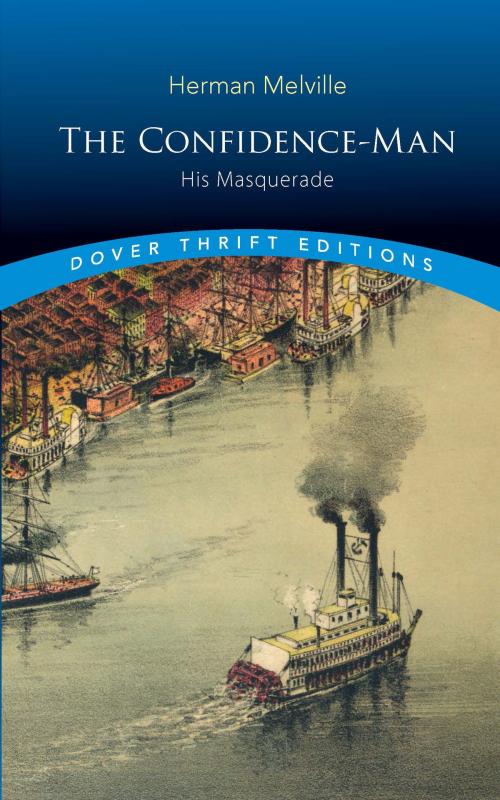| Author: | Herman Melville | ISBN: | 9780486825946 |
| Publisher: | Dover Publications | Publication: | October 23, 2017 |
| Imprint: | Dover Publications | Language: | English |
| Author: | Herman Melville |
| ISBN: | 9780486825946 |
| Publisher: | Dover Publications |
| Publication: | October 23, 2017 |
| Imprint: | Dover Publications |
| Language: | English |
On April Fool's Day in 1856, a shape-shifting grifter boards a Mississippi riverboat to expose the pretenses, hypocrisies, and self-delusions of his fellow passengers. The con artist assumes numerous identities — a disabled beggar, a charity fundraiser, a successful businessman, an urbane gentleman — to win over his not-entirely-innocent dupes. The central character's shifting identities, as fluid as the river itself, reflect broader aspects of human identity even as his impudent hoaxes form a meditation on illusion and trust.
This comic allegory addresses themes of sincerity, character, and morality in its challenge to the optimism and materialism of mid-19th-century America. By the time of its publication, readers had pigeonholed Herman Melville as a writer of adventure yarns. The novel was completely misunderstood by the author's contemporaries, and its financial failure drove him away from fiction. With the passage of time, however, The Confidence-Man has come to be recognized for its stunningly modern techniques and its indictment of the dark side of the American dream.
On April Fool's Day in 1856, a shape-shifting grifter boards a Mississippi riverboat to expose the pretenses, hypocrisies, and self-delusions of his fellow passengers. The con artist assumes numerous identities — a disabled beggar, a charity fundraiser, a successful businessman, an urbane gentleman — to win over his not-entirely-innocent dupes. The central character's shifting identities, as fluid as the river itself, reflect broader aspects of human identity even as his impudent hoaxes form a meditation on illusion and trust.
This comic allegory addresses themes of sincerity, character, and morality in its challenge to the optimism and materialism of mid-19th-century America. By the time of its publication, readers had pigeonholed Herman Melville as a writer of adventure yarns. The novel was completely misunderstood by the author's contemporaries, and its financial failure drove him away from fiction. With the passage of time, however, The Confidence-Man has come to be recognized for its stunningly modern techniques and its indictment of the dark side of the American dream.















